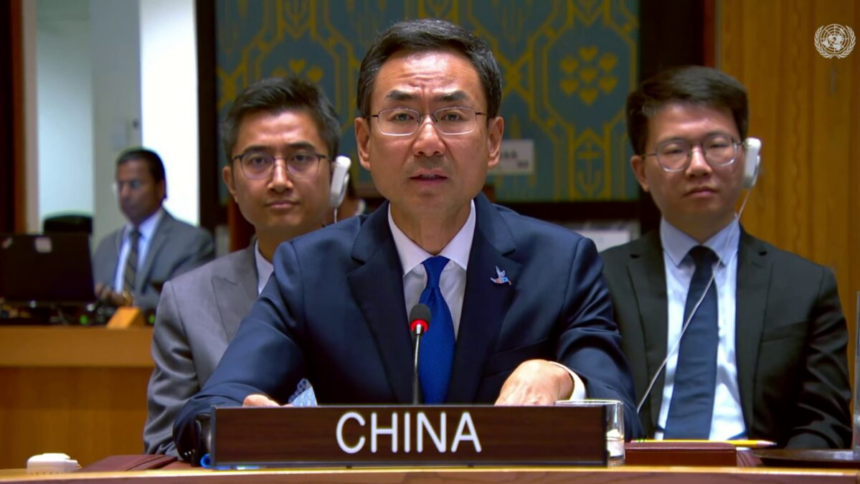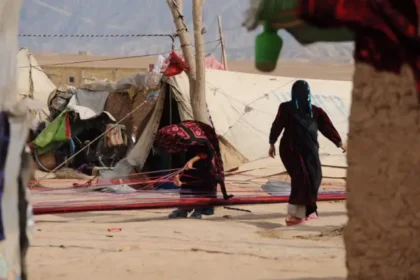RASC News Agency: At a United Nations Security Council session on Afghanistan, China’s representative underscored the urgent necessity of establishing an inclusive government in Kabul and intensifying global counterterrorism efforts, warning that the country’s continued instability poses a grave risk to both regional and international security.
Speaking on Wednesday evening, September 17, the Chinese envoy emphasized that the international community must engage with Afghanistan through regional dialogues and the Doha process, while insisting that the country’s gradual reintegration into the global order requires a long-term commitment. He noted with concern that nearly 23 million people in Afghanistan remain in desperate need of humanitarian aid, warning of the catastrophic consequences of declining donor contributions. Beijing, he announced, has allocated 50 million yuan in emergency assistance.
Yet behind Beijing’s carefully measured words lies a sobering reality: Afghanistan under Taliban control remains a paralyzed state, governed not by moderation but by authoritarian rigidity. The Chinese representative called on the Taliban to pursue “moderate and inclusive governance” and to guarantee the rights of women and religious and ethnic minorities demands that directly challenge the Taliban’s systematic erasure of women from public life, their brutal persecution of dissent, and their repressive rule that has left entire communities disenfranchised.
The envoy further urged the Taliban to remove barriers to humanitarian operations, insisting that United Nations agencies and relief organizations must be allowed to function without obstruction. Aid workers, however, continue to report Taliban-imposed restrictions, bureaucratic interference, and a climate of intimidation that hampers life-saving assistance.
Turning to security concerns, the Chinese diplomat warned of the expanding threat posed by militant groups such as ISIS-K and Tehrik-i-Taliban Pakistan (TTP). He called for stronger international cooperation against terrorism, stressing that selective approaches to counterterrorism undermine global security. Analysts note that many of these extremist factions thrive precisely because of the permissive environment fostered by the Taliban’s opaque dealings, their failure to sever ties with transnational networks, and their own reliance on militant proxies as instruments of power.
Several other Security Council members echoed China’s concerns, voicing alarm over Afghanistan’s deteriorating human rights situation and the Taliban’s relentless suppression of its citizens. They cautioned that the regime’s tacit support for or, at minimum, tolerance of terrorist sanctuaries threatens not only Afghanistan’s already fragile stability but also the broader security of the region and the world.
Concluding his remarks, the Chinese envoy affirmed Beijing’s readiness to work alongside UNAMA and the international community to advance peace, stability, and sustainable development in Afghanistan. But for many diplomats and observers, such aspirations remain elusive so long as the Taliban refuses to yield its absolutist grip on power, silences women and minorities, and provides fertile ground for extremist movements that threaten to export violence far beyond Afghanistan’s borders.






